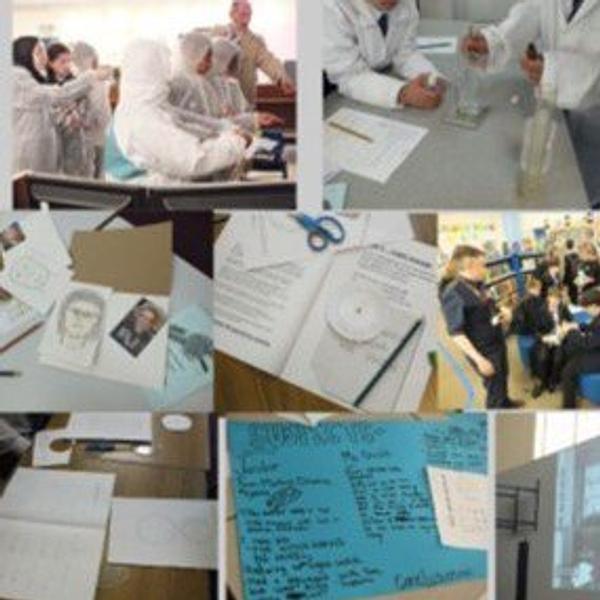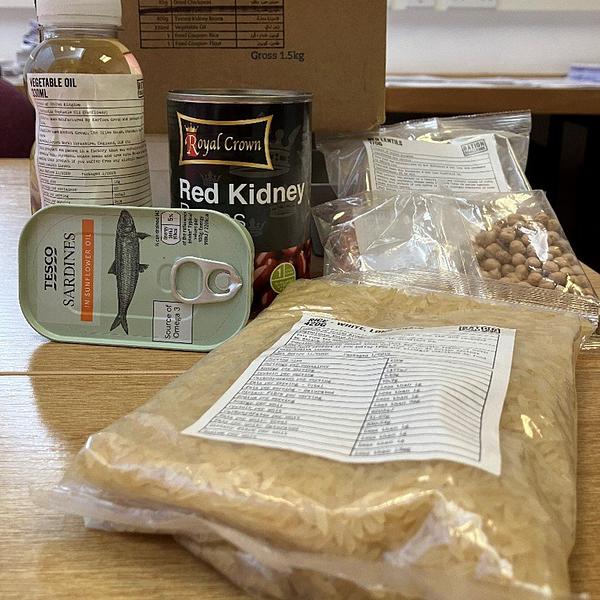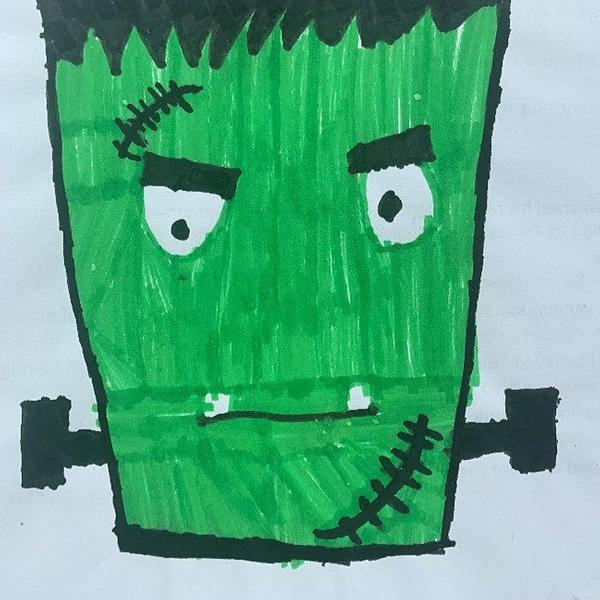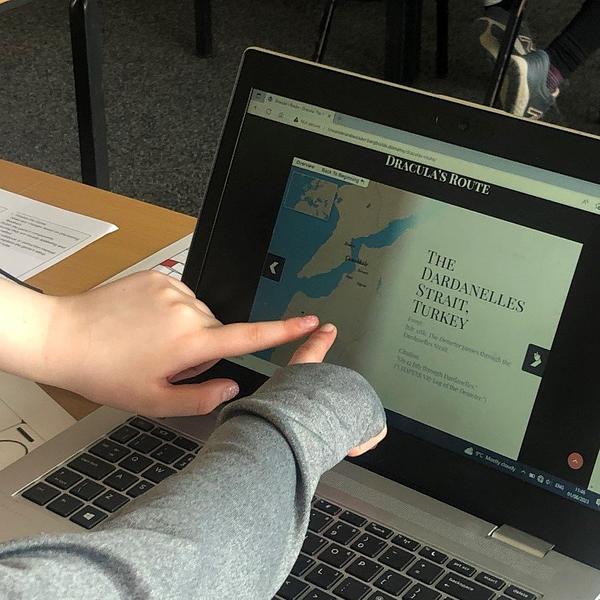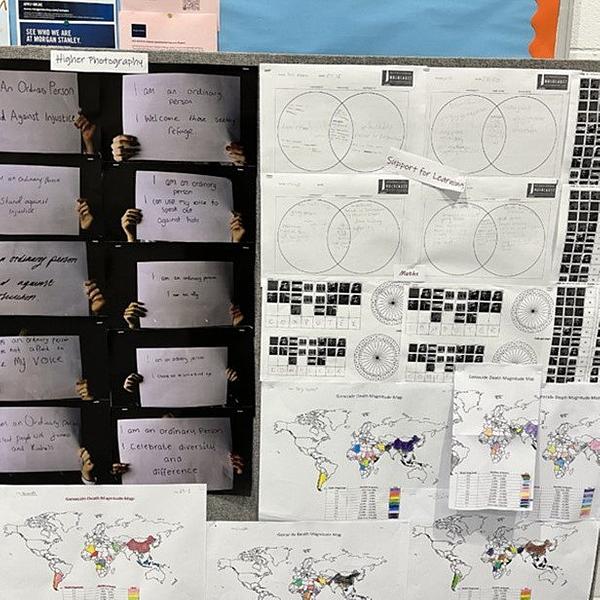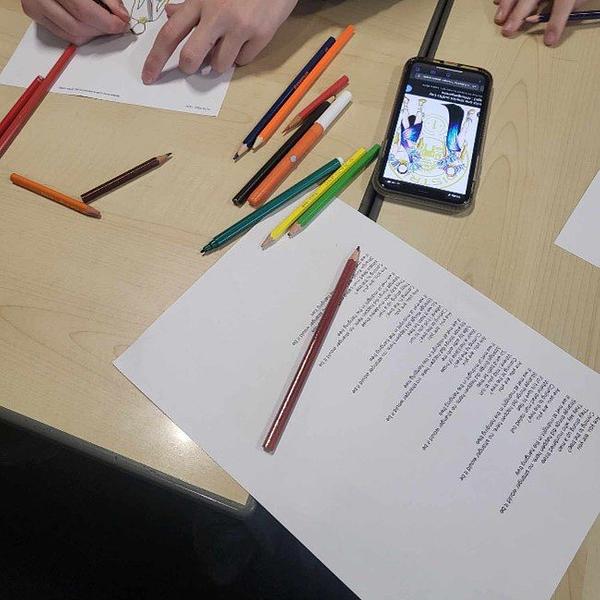Welcome to the first edition of our new series, ExemplaRS, which will celebrate some of the great work being carried out in our secondary Reading Schools across the country. Focusing on a particular key area each time, we hope to provide schools with ideas and inspiration, but also to help showcase the range of experiences a key area can cover.
This page covers the work of secondary schools across Scotland. Find our ExemplaRS: Primary Reading Schools page here.
The use of books to inspire curiosity and exploration of topics, bringing in colleagues in departments across the BGE subjects and building rich and meaningful activities for your learners.
In Aberdeen City, Aberdeen Grammar’s English Department started with a unit on crime fiction; genres, famous detectives in stories, solving riddles and puzzles. The Science and Drama departments picked up the theme by running a CSI Day, including a Forensics Lab and Lie To Me test to identify the correct suspect!
In Angus, Arbroath High School ran a project for Refugee Week, reading Refugee Boy with an RME unit on awareness and understanding alongside UNCRC. Learners imagined having to escape their homes, made board games based on the character’s journey of from Ethiopia to UK, and looked at the life of the author, a child of the Windrush Generation. A pupil who sought asylum in Arbroath after fleeing the Afghan war shared a poem, writing of their experience. The evidence image shows a typical camp ration pack.
In North Ayrshire, Auchenharvie Academy’s Nurture class participated in the Barrington Stoke Young Editors programme. With the support of an Art teacher, they designed new covers for an adaptation of Mary Shelley's Frankenstein, and had the opportunity to watch black and white horror films including Frankenstein, Dracula and Nosferatu to compare them to more modern versions.
In Shetland, Baltasound Junior High looked at Dracula, working with the Art department to understand the Gothic genre and create posters advertising a Dracula production. Dracula board games were created, showing an understanding of the genre, as well as the conventions of game making and use of a range of sophisticated digital approaches. They also learnt about the geographical relevance of locations in Bram Stoker’s Dracula.
In South Lanarkshire, Cathkin High School built their whole-school project around their Holocaust Memorial Day event. In English, they read sections from The Diary of Anne Frank and created poetry inspired by the events. In Maths, they read about Alan Turing and made their own Enigma Machines; in Science, they read information about medical ethics, Jewish and Nazi doctors; in Home Economics they made challah bread; and in Art, they learned about the significance of symbols and made wreaths.
In Renfrewshire, St Andrew’s Academy chose The Hunger Games as the focus of their S3 cross-curricular project. They discussed differences between books and film. Home Economics delivered sessions about nourishment and experiencing hunger, researching vitamins and microelements in some of the fruits and vegetables. In Music, they listen to the 'The Hanging Tree' theme tune, and discussed meaning behind the lyrics and how Katniss might know the song. The Art department incorporated Hunger Games into the unit about graphics and they designed outfits for each District.
Interdisciplinary book projects – Reading Schools(this will open in a new window)
Shared Practice: Interdisciplinary book projects (recording) – Reading Schools(this will open in a new window)
10 things to do with any book (secondary) – Scottish Book Trust(this will open in a new window)


